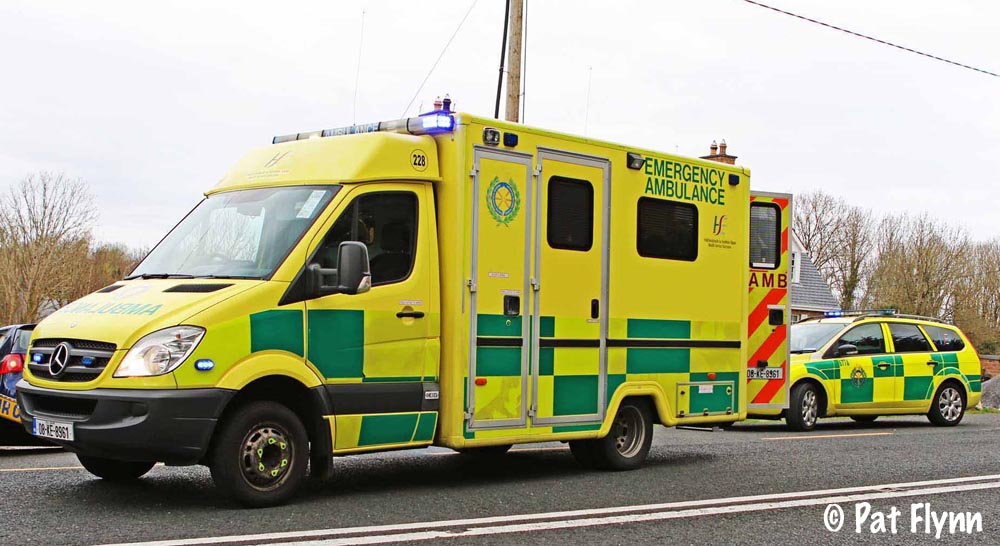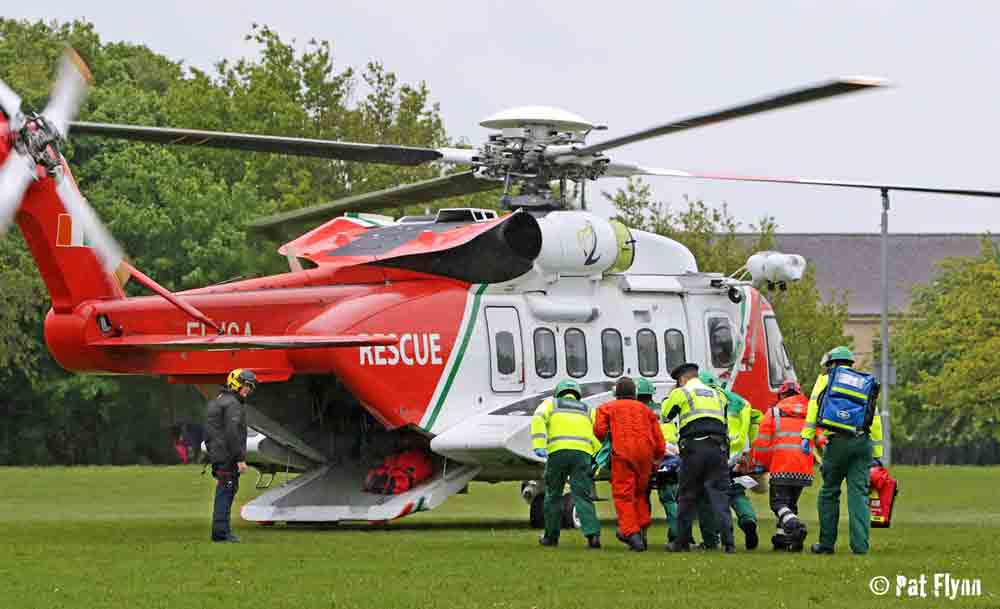
A dedicated rapid response vehicle (RRV) wasn’t available when a ‘barely-conscious’ man was pulled from the sea in Co Clare at the weekend.
The National Ambulance Service (NAS) has again been accused of putting lives in Co Clare at risk by continuously taking the essential RRV out of service.
Advanced paramedics, specially trained in Advanced Life Support (ALS), operate from dedicated custom fitted RRV’s specifically introduced in 2009 when the A&E departments in Ennis and Nenagh were downgraded and later closed.
On Saturday, as the RRV had again been grounded by the ambulance service, two ambulances were sent to an incident in west Clare even though only one was needed.
While an ambulance from Ennistymon attended the incident, a second was sent over 40kms from Ennis with an advanced paramedic who should have been in the dedicated rapid response vehicle.
Instead the advanced paramedic was sent to the emergency in a six-tonne ambulance taking almost twice as long to get there than if he was in the RRV.
The advanced paramedic service, despite being heralded as “A&E on the road” by the HSE, is “off the road more often than it’s on”, according to paramedics.
On Saturday, when an advanced paramedic was required to attend a serious incident at Seafield near Quilty, he had to travel to the scene from Ennis in an ambulance. This also left Ennis town with reduced cover.

“This is happening all the time now. It’s not only putting the lives of our patients at risk but also our crews. An advanced paramedic, who usually responds to calls before an ambulance, can’t be expected to race to a scene in a massive ambulance. It’s crazy, dangerous an irresponsible of the National Ambulance Service to allow this happen,” on paramedic said.
“No other county in the country has the same staffing and relief issues that Clare has yet this is one of the only counties in Ireland that doesn’t have an A&E department. Our patients have to go to Limerick of Galway,” he added.
Clare County Councillor and member of the HSE’s Health Forum (West) Tom McNamara said: “The withdrawal of the rapid response vehicle last Saturday is totally unacceptable and its a situation that is putting lives in danger.”
“We need assurances from the National Ambulance Service that we get adequate staff deployed to Clare to insure we have appropriate ambulance services to meet the needs of the people of the county,” Mr McNamara said.

The man at the centre of Saturday’s near-tragedy was pulled from the sea by members of the West of Ireland Sea Kayaking Association (WISKA). The man in his 60’s was barely conscious but was taken ashore by the kayakers. He was later airlifted to hospital by the Irish Coast Guard.
The National Ambulance Service has not responded to a query on the matter.